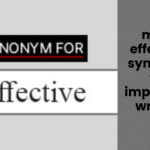Mental health is a cornerstone of overall well-being. It affects how we think, feel, and act, influencing our ability to handle stress, relate to others, and make decisions. While therapy, medication, or support groups are essential for many, adopting healthy daily habits can significantly improve mental health for everyone. Here are some actionable ways to enhance your mental well-being through simple, consistent practices.
1. Prioritize Sleep
Sleep is fundamental to mental health. Poor sleep can exacerbate symptoms of anxiety, depression, and stress, while quality rest improves mood, cognitive function, and emotional resilience. To improve your sleep habits:
- Maintain a consistent sleep schedule: Aim for 7-9 hours of sleep per night and go to bed and wake up at the same time daily, even on weekends.
- Create a bedtime routine: Unwind with relaxing activities such as reading, meditating, or taking a warm bath.
- Optimize your sleep environment: Keep your bedroom dark, quiet, and cool, and avoid screens an hour before bedtime.
2. Stay Physically Active

Exercise is a proven mood booster. Regular physical activity releases endorphins—the body’s natural feel-good chemicals—which reduce stress and improve mental clarity. You don’t need an intense workout routine to see benefits. Here are some tips:
- Start small: Even a 20-minute walk can lift your mood.
- Find activities you enjoy: Dance, yoga, cycling, or gardening can be excellent options.
- Make it a routine: Aim for at least 150 minutes of moderate exercise weekly, spread across most days.
3. Eat a Balanced Diet
Nutrition directly affects brain health and emotional well-being. A diet rich in whole foods, lean proteins, and healthy fats can improve focus, energy levels, and mood. Here’s how to eat for better mental health:
- Incorporate omega-3 fatty acids: Found in fish, flaxseeds, and walnuts, omega-3s are linked to lower rates of depression.
- Eat more fruits and vegetables: The antioxidants, vitamins, and minerals in produce nourish the brain.
- Limit processed foods and sugar: These can cause energy crashes and mood swings.
- Stay hydrated: Dehydration can lead to irritability and difficulty concentrating.
4. Practice Mindfulness and Meditation
Mindfulness—the practice of staying present and fully engaged in the moment—can reduce stress, anxiety, and negative thought patterns. Meditation is a structured way to build mindfulness. Here’s how to get started:
- Set aside time daily: Even 5-10 minutes of meditation can make a difference.
- Use guided resources: Apps like Headspace or Calm provide step-by-step instructions.
- Incorporate mindfulness into daily activities: Focus on your breath, notice sensations, or savor your meals.
5. Build Strong Social Connections

Human connection is vital for mental health. Supportive relationships provide comfort, reduce stress, and foster a sense of belonging. To strengthen your social bonds:
- Schedule regular catch-ups: Stay in touch with friends and family, whether through calls, video chats, or in-person visits.
- Join groups or communities: Participate in clubs, classes, or volunteer work to meet like-minded individuals.
- Share your feelings: Open communication strengthens relationships and provides emotional relief.
6. Limit Screen Time and Social Media
Excessive screen time, particularly on social media, can harm mental health by promoting comparison, misinformation, and isolation. To maintain a healthy digital balance:
- Set boundaries: Allocate specific times for checking social media or emails.
- Take regular breaks: Practice the “20-20-20 rule” by looking at something 20 feet away for 20 seconds every 20 minutes.
- Unfollow negativity: Curate your online feeds to include uplifting and inspiring content.
7. Cultivate Gratitude
Gratitude shifts focus from what’s lacking to what’s abundant, improving emotional resilience and happiness. Incorporate gratitude into your routine by:
- Keeping a gratitude journal: Write down 3-5 things you’re thankful for each day.
- Expressing appreciation: Let others know you value them through kind words or gestures.
- Practicing mindfulness: Pause to notice the positive moments in your life, no matter how small.
8. Learn Stress-Management Techniques
Chronic stress can take a toll on mental health. Developing effective coping mechanisms can prevent stress from becoming overwhelming. Consider:
- Deep breathing exercises: Inhale for four counts, hold for four, and exhale for four.
- Progressive muscle relaxation: Tense and release different muscle groups to reduce tension.
- Time management: Break tasks into smaller steps and prioritize them to avoid feeling overwhelmed.
9. Pursue Hobbies and Passions
Engaging in activities that bring joy fosters a sense of purpose and achievement. Whether it’s painting, playing an instrument, or cooking, hobbies provide an outlet for creativity and relaxation. Make time for:
- Exploring new interests: Take a class or try something you’ve always wanted to do.
- Setting goals: Work on projects that inspire you and provide a sense of accomplishment.
- Allowing playfulness: Enjoy activities without worrying about outcomes or perfection.
10. Seek Professional Help When Needed
While daily habits significantly improve mental health, some challenges require professional support. Therapy, counseling, or medical intervention can provide tools and treatments tailored to your needs. Don’t hesitate to:
- Reach out to a therapist: A licensed professional can offer guidance and coping strategies.
- Join support groups: Sharing experiences with others facing similar challenges can be empowering.
- Consider medication if advised: Sometimes, medications can help balance brain chemistry and enhance the effectiveness of other interventions.
Conclusion
Improving mental health is a continuous journey, not a destination. By incorporating these daily habits, you can build a strong foundation for emotional well-being, resilience, and happiness. Remember, small, consistent changes often lead to the most significant results. Start with one or two habits that resonate with you, and gradually expand your efforts. Prioritizing mental health is one of the best investments you can make in yourself.







